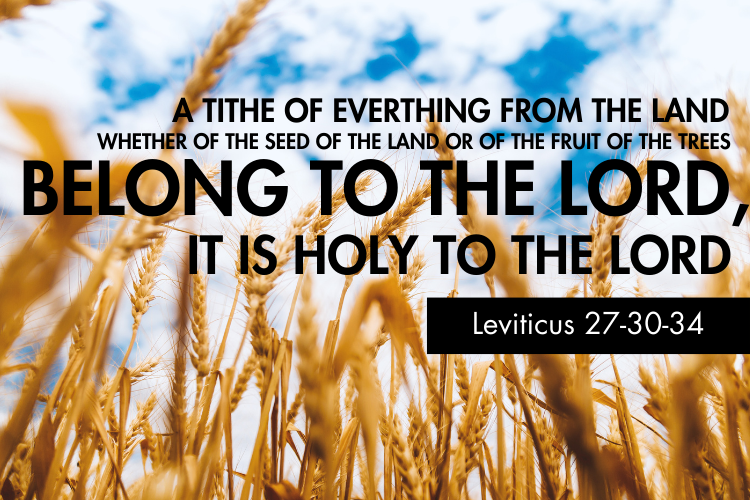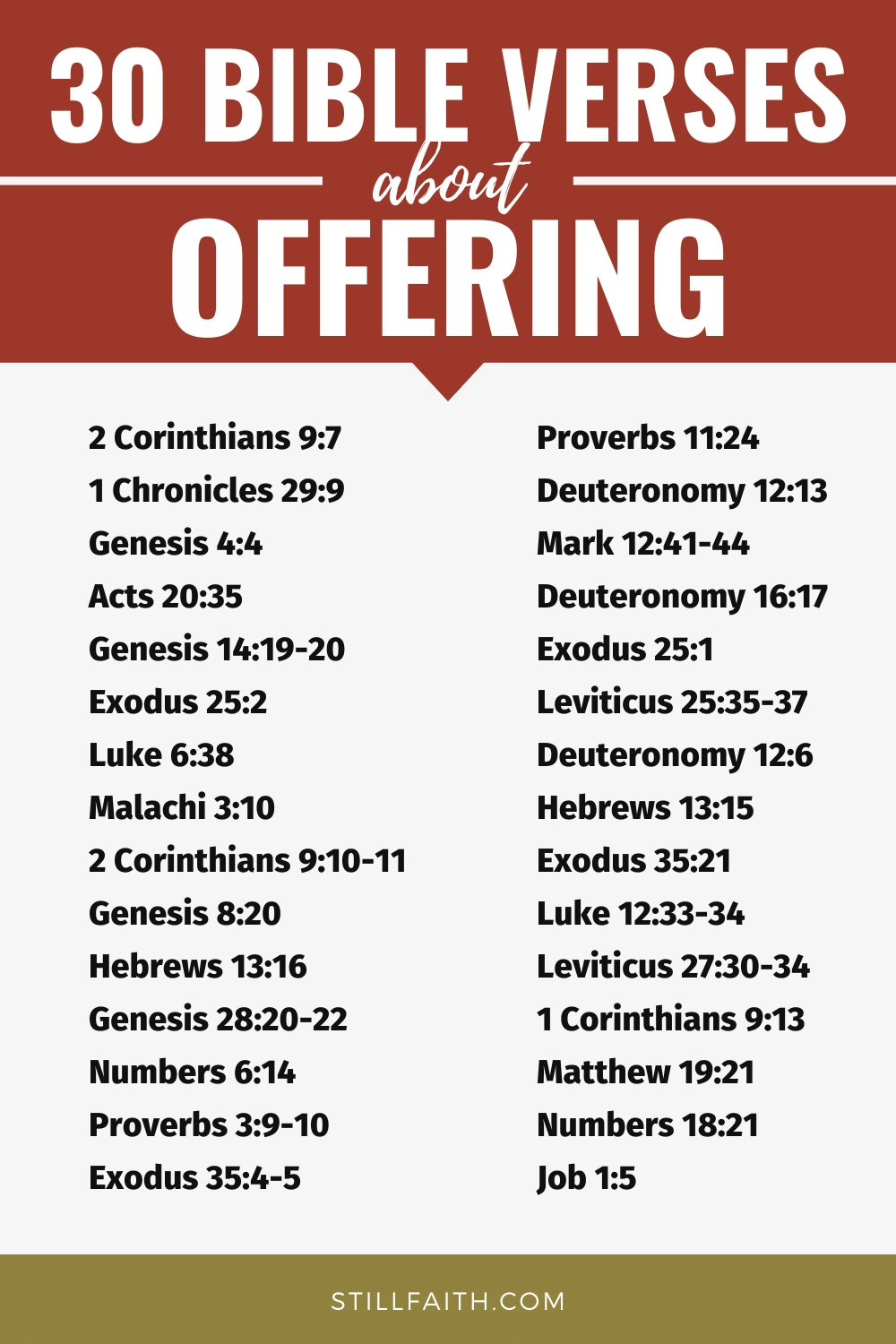What Does The Bible Say About Tithes And Offerings Kjv

For centuries, the practice of tithing and giving offerings has been a cornerstone of Christian faith and church finance. Understanding the biblical basis for these practices, particularly as presented in the King James Version (KJV), continues to be a topic of discussion and interpretation among believers.
This article examines what the KJV Bible says about tithes and offerings, exploring the historical context, key verses, and diverse perspectives on its application in contemporary Christian life. It aims to provide a factual and unbiased overview of this important aspect of Christian stewardship.
The Old Testament Roots of Tithing
The concept of tithing appears early in the Old Testament. In Genesis 14:20, Abraham gives a tenth of the spoils of war to Melchizedek, a priest of God. This act, though pre-Mosaic law, is often seen as a precursor to the formal tithing system established later.
The Mosaic Law, detailed extensively in the books of Leviticus, Numbers, and Deuteronomy, mandates tithing as an obligation for the Israelites. Leviticus 27:30 states, "And all the tithe of the land, whether of the seed of the land, or of the fruit of the tree, is the LORD'S: it is holy unto the LORD."
The tithe was primarily intended to support the Levitical priesthood, who did not receive land inheritance like the other tribes. It also served to care for the poor, widows, and orphans within the community, as highlighted in Deuteronomy 14:28-29.
Offerings: Beyond the Tithe
In addition to the tithe, the Old Testament also describes various types of offerings. These were often voluntary gifts, given out of gratitude or devotion to God. These included burnt offerings, sin offerings, peace offerings, and freewill offerings.
Offerings were used for different purposes, such as atonement for sins or expressing thanksgiving to God. The KJV details specific guidelines for these offerings, including the types of animals and grains to be used and the rituals to be followed.
The New Testament Perspective
The New Testament does not explicitly command tithing in the same way as the Old Testament. However, it addresses the principles of giving and generosity in various contexts.
Jesus mentions tithing in Matthew 23:23 and Luke 11:42, criticizing the Pharisees for focusing on the meticulous details of tithing while neglecting weightier matters such as justice, mercy, and faith. This passage is often interpreted as affirming the practice of tithing while emphasizing the importance of a right heart attitude.
The Apostle Paul, in his letters, encourages believers to give generously and cheerfully, according to their ability. 2 Corinthians 9:7 states, "Every man according as he purposeth in his heart, so let him give; not grudgingly, or of necessity: for God loveth a cheerful giver." This verse emphasizes voluntary giving rather than mandatory tithing.
Interpretations and Contemporary Application
Christians hold diverse views on the application of tithing and offerings today. Some believe that the principle of tithing remains relevant as a guideline for giving, while others argue that it was specific to the Old Covenant and is not binding on New Testament believers.
Many churches encourage members to give a tithe (10%) of their income, while others leave the amount to individual discretion. Regardless of the specific practice, the New Testament emphasizes the importance of generosity, sacrificial giving, and supporting the work of the church.
The debate continues within Christian communities, with some advocating strict adherence to a 10% tithe and others promoting proportional giving based on individual circumstances and a commitment to generosity. Understanding the biblical context, as presented in the KJV, is crucial for individuals to make informed decisions about their giving.
The Impact of Giving
The practice of tithing and giving offerings has a significant impact on both the giver and the recipient. For the giver, it can cultivate a spirit of generosity, gratitude, and dependence on God.
For the recipient, particularly the church or charitable organization, it provides resources to carry out its mission, support its staff, and minister to the needs of the community. Effective stewardship of these resources is vital for maximizing their impact.
"Each of you should give what you have decided in your heart to give, not reluctantly or under compulsion, for God loves a cheerful giver." - 2 Corinthians 9:7 (KJV)
Ultimately, the KJV Bible presents a rich and complex understanding of tithing and offerings. It encourages believers to examine their hearts, understand the biblical principles, and give generously and cheerfully to support God's work in the world.


















